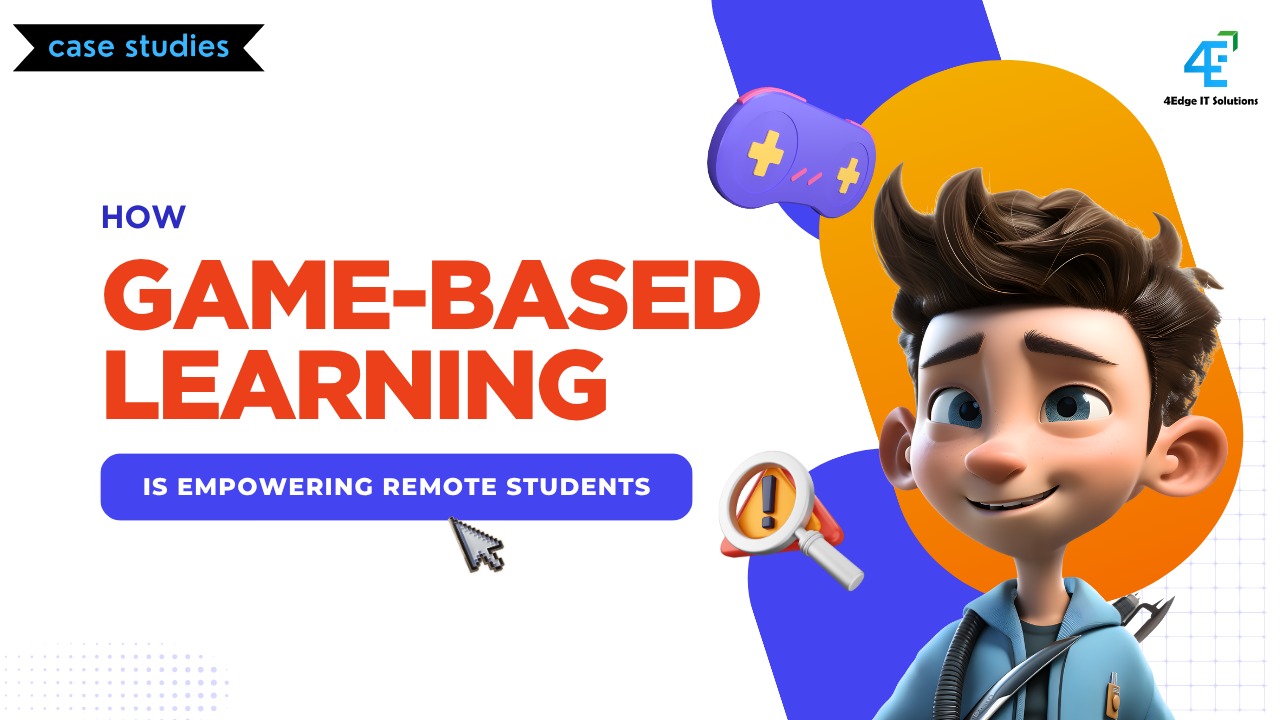How Game-Based Learning is Empowering Remote Students | Case Study
Client: Bengaluru-based NGO
Industry: Education
Focus: Universal elementary education and empowering students in remote areas of India
Challenge: Delivering Math Education in Remote Areas
In India, many children, especially those in remote rural areas, have limited access to quality educational resources. This challenge is even more pronounced in mathematics, where traditional teaching methods often fail to engage younger students, especially in areas with limited infrastructure.

- Deliver interactive math education to children in rural India.
- Overcome challenges such as limited internet access, lack of infrastructure, and language barriers.
- Ensure that the learning materials were engaging enough to capture and retain students' attention.
Our client, a Bengaluru-based NGO, was committed to universalizing elementary education. They wanted to reach 6th-8th grade students in remote areas of India and impart math education in a fun, engaging, and accessible way.
The problem they faced was how to:
For an organization in the highly-regulated clinical research industry, these challenges meant there was a constant need to track employee training progress and ensure compliance at all stages of the clinical trial process.

Solution: Game-Based Learning for Elementary Students
We believe that technology has the power to bridge the gap between remote education and quality learning. To address the client's needs, we developed 250 math games using Phaser, a JavaScript-based game development platform.
- Focused on core math concepts for 6th-8th grade students.
- Were designed to be interactive and engaging, ensuring students could play while learning.
- Ensure that training records are audit-ready, compliant with industry regulations, and easy to access.
- Were integrated into a mobile app that supported 7 Indian languages, ensuring accessibility for diverse learners across the country.
- Were made available on both Google Play Store and the DIKSHA platform, centralizing access for students and teachers alike.
The math games:
Key Features:
- 250 math games covering various math topics, from basic arithmetic to geometry and algebra.
- Multi-language support: The app was available in 7 languages, including Hindi, Kannada, Tamil, Telugu, and Marathi, ensuring access for students in different states.
- Offline availability: Since internet access in rural areas can be inconsistent, the games were designed to be accessible even without an internet connection, allowing for uninterrupted learning.
- Centralized distribution via Google Play Store and DIKSHA platform, ensuring that all students and educators could access the games easily.
- Tracking and reporting features to measure the effectiveness of the program and gather insights on student progress.
Results: Impactful Learning in Remote Areas
The game-based learning platform created significant improvements in both student engagement and performance:
1. Engaged Students with Interactive Learning
- The interactive nature of the math games made learning fun and engaging for students, who often struggle with traditional methods of learning.
- The games not only helped students improve their math skills but also encouraged them to participate actively in the learning process.
2. Centralized Access and Easy Distribution
- By integrating the platform into Google Play Store and DIKSHA, the program achieved widespread reach. The games were easily accessible for students and teachers across the country, especially in remote areas with limited educational resources.
3. Measurable Program Effectiveness
- Through integrated tracking and reporting, the NGO could assess the program's impact in real time. Teachers and administrators could monitor student progress, identify areas where students were struggling, and adapt teaching strategies accordingly.
4. Multi-Language Accessibility
- The app’s multi-language support made it possible to reach a wide array of learners from different regions and linguistic backgrounds, thus ensuring that language was not a barrier to learning math
Client Benefits:
- Engaging Math Learning:The game-based approach made math more enjoyable, leading to increased participation and better learning outcomes.
- Cost-Effective and Scalable Solution:The app could be easily distributed across the country at minimal cost, and the games’ effectiveness was easily measurable.
- Enhanced Learning and Tracking Teachers were able to track individual student progress and adjust learning paths based on their needs.
Changing Education with Technology
This case study highlights the power of technology in education and the tremendous impact it can have in remote learning environments. By leveraging game-based learning, 4Edge IT Solutions helped this
Bengaluru-based NGO make math education accessible and engaging for students across India’s rural areas.
With the success of this initiative, the organization now has a proven model for scalable and interactive learning, which can be replicated in other regions or expanded to cover more subjects.
At 4Edge IT Solutions, we are committed to creating innovative learning solutions that empower organizations to improve education accessibility and enhance student engagement in every corner of the world.
Interested in learning how we can support your educational initiatives?
Contact us today to discuss how game-based learning and custom LMS solutions can help transform the learning experiences in your organization.